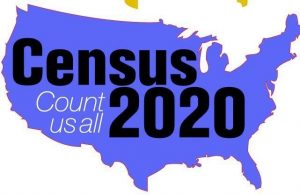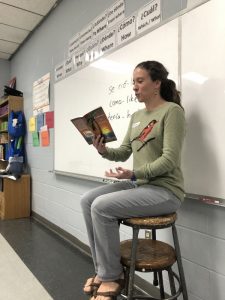News
Don’t Let COVID-19 Keep You From Responding to 2020 Census
April 4, 2020
By: Dwayne Page
In the midst of the COVID-19 pandemic, April 1st officially started the 2020 Census. You should have received your Census form in the mail. Your help is needed to make sure there is an accurate population count.
The U.S. Constitution mandates a census of the population every 10 years. Responding to the 2020 Census is easy, safe and important, and is key to shaping the future of communities. Census statistics are used to determine the number of seats each state holds in the U.S. House of Representatives and informs legislative district boundaries. They also inform how hundreds of billions of dollars in public funds are allocated by state, local and federal lawmakers to communities for public services and infrastructure like hospitals, emergency services, schools and bridges each year over the next 10 years.
36.2 percent of households across the nation have responded to the 2020 Census since invitations began arriving in mailboxes March 12-20. Response rates are updated in the map daily seven days a week so that the public can see how well their community is doing compared to the nation and other areas.
The Census Bureau is strongly encouraging the public to respond to the 2020 Census online using a desktop computer, laptop, smartphone or tablet. You can respond online or by phone in English or 12 other languages. There are also 59 non-English language guides and videos (plus American Sign Language) available on 2020census.gov ensuring over 99% of U.S. households can respond online in their preferred language. It has never been easier to respond on your own — all without having to meet a census taker. This is really important with the current health and safety guidance being provided by national, state and local health authorities.
When you respond:
• Respond for where you live.
• Include everyone who usually lives and sleeps in your home as of April 1, even if they are staying somewhere else temporarily. This includes relatives, friends, roommates and anyone else who lives and sleeps in your home most of the time — even children under age five and babies born on or before April 1, even if they are still in the hospital.
• Count college students where they live while attending school. If they live on campus in university/college housing such as dorms or fraternity/sorority houses, they will be counted by school officials and do not need to respond. However, if they live off campus in private housing or apartments, they should respond to the census on their own using their off-campus address even if they are currently staying elsewhere.
• Find additional answers about “Who to Count” at 2020census.gov.
You can use the Census ID from your invitation or provide your address when you respond. Then, please make sure your friends, family and social networks know about the importance of responding and encourage them to complete their census. Responding now will minimize the need for a census taker to follow up and visit your home later this year.
Some households — in areas less likely to respond online — have already received a paper questionnaire along with their first invitation. Households that have not responded online or by phone will receive a paper questionnaire April 8-16.
For more information, visit 2020census.gov.
Please note: Based on continuing assessments of guidance from federal, state and local health authorities, the Census Bureau is suspending 2020 Census field operations to April 15, 2020. The Census Bureau is taking this step to help protect the health and safety of the American public, Census Bureau employees, and everyone who will go through the hiring process for temporary census taker positions. The Census Bureau continues to evaluate all 2020 Census field operations, and will communicate any further updates as soon as possible.
The 2020 Census is open for self-response online at 2020Census.gov, over the phone by calling the number provided in your invitation, and by paper through the mail.
Remember, you can reply 3 different ways:
Online at https://2020census.gov/en/ways-to-respond/responding-online.html
Phone – 1-844-330-2020
Mail it back
The results of the 2020 Census will help determine how federal dollars will flow into communities every year for the next decade. That funding shapes many different aspects of every community, no matter the size, no matter the location. School lunches, grants that support teachers and special education, support for emergency services, programs for older adults, and highway projects are just a very few examples of federal funding supporting the county.
Your participation is critical to making sure DeKalb County receives its share of federal funding. Every person counts!
Visit www.2020census.gov for more information.
TDEC To Close Edgar Evins and All 56 Tennessee State Parks Effective April 4
April 3, 2020
By: Dwayne Page
The Tennessee Department of Environment and Conservation (TDEC) today announced it will close all 56 Tennessee state parks including Edgar Evins and state-owned state natural areas to the public effective April 4 through April 14, in support of Gov. Bill Lee’s Executive Order 23. This is a complete closure of facilities and access to all Tennessee State Parks and Designated State Natural Areas.
“We decided to close the parks in support of Governor Lee’s Executive Order 23,” TDEC Commissioner David Salyers said. “The health and safety of Tennessee citizens is all of our top priority right now.”
Tennessee State Parks officials will continue to monitor the COVID-19 pandemic. For more information, visit www.tnstateparks.com.
DCHS Teacher Receives Prestigious Honor
April 3, 2020
By: Dwayne Page
The Tennessee Foreign Language Teaching Association (TFLTA) has named DeKalb County High School’s Brittany Dixon as the “Best of Tennessee” for her presentation at the association’s state language conference.
From a pool of more than 60 presenters, Dixon was selected to represent Tennessee at the regional Southern Conference of Language Teachers (SCOLT) held in Mobile, Alabama. According to Rebecca Peterson, Vice President of TFLTA, “Mrs. Dixon’s evaluations were remarkable, and her session was highly attended.”
In her session, Dixon demonstrated how language educators could use short novels to promote language acquisition, even during the first semester of language study. When asked what this teaching method looks like at DCHS Mrs. Dixon explained, “In a nutshell, each semester my colleague, Brent Simpson, and I read a small book with our students, written completely in Spanish, and then we pair the main text with activities that increase students’ exposure to comprehensible language. Though I’m not always sure our students realize it, the time they spend working through a leveled-reader is one of the most valuable things they do in our classes because the end result is true contextualization and acquisition – not mere memorization – of high-frequency language that they can continue to build on for years to come.”
Due to the outbreak of coronavirus, SCOLT wisely elected to cancel their annual meeting. However, Mrs. Dixon says she hopes to attend the conference in the future, presenter or not. “I’m sincere when I say that I love getting to see what skilled language educators are doing in their classrooms. It felt great to receive this honor, but more importantly, it feels great to be part of a larger body of educators that have a drive to constantly hone their craft.”
« First ‹ Previous 1 1423 1513 1521 1522 15231524 1525 1533 1623 2494 Next › Last »










